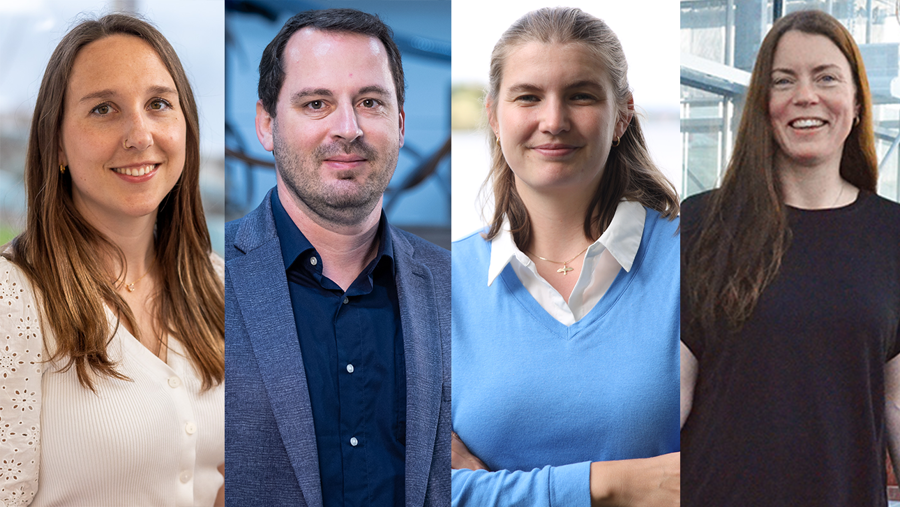Insights from the RevoCaP Webinar
November 7th, 2025 – Around 90 people attended EasyMining’s webinar to get the latest insights in their fertilising product, a calcium phosphate named RevoCaP.
19 Nov 2025RevoCaP is produced through the company’s Ash2Phos process, currently implemented at two plants - one in Schkopau, Germany, and another in Helsingborg, Sweden - each with a production capacity of 15,000 t of RevoCaP. The material could be used as a fertiliser and is approved for organic farming.
This webinar highlighted the product and how it works and also addresses, how it is helping create more sustainable agriculture. The event was moderated by Pär Larshans, Chief Sustainability Officer of EasyMining’s parenting company Ragn-Sells Group.
Phosphorus Challenges in Organic Farming
The first speaker, Sarah Symanciz, co-lead of the group for nutrient management and symbiosis at the Research Institute of Organic Agriculture (FiBL) in Switzerland gave a short introduction to FiBL, founded 50 years ago. She emphasized that phosphorus (P) is a crucial element for agriculture in Europe, but there is an unbalanced phosphorus stock in European soils, which eventually calls for farm-scale phosphorus management.
Under organic farming, phosphorus depletion has been observed, possibly due to the lack of available fertilisers in the past. Most farms rely on manure and compost, but there is also a positive list of allowed commercial phosphorus fertilisers, mainly based on rock phosphate, which are P-rich fertilisers.
– Phosphorus recycling involves navigating through several constraints. Recycled phosphorus is needed in organic farming, as mining causes environmental damage and recycling can reduce water pollution, Sarah Symanciz said.
Within the project “SCALE-it,” FiBL aims to develop a multicriteria decision support system for organic farming, paving the way for recycling fertilisers such as RevoCaP.
RevoCaP and the Ash2Phos Process
Second in the webinar was Philipp Theuring, market development manager for RevoCaP at EasyMining. He explained that EasyMining is on the right track toward achieving a circular economy and elaborates on the Ash2Phos process, which recovers valuable materials from sewage sludge ash. The process produces several outputs, including high-purity calcium phosphate (RevoCaP), iron chloride, aluminium compounds, and sand - all of which are reused, resulting in a waste reduction of around 95%.
Philipp Theuring emphasizes the importance of thinking fully circular - not only extracting valuable materials but also finding uses for all co-products.
The Ash2Phos plant in Schkopau is currently under construction. The first products are expected to be available by mid-2027, with production reaching about 15,000 tonnes of RevoCaP by 2028. Production capacity will rise up to 30,000 tonnes by 2032 with additional input from the second plant in Helsingborg, that also under construction.
Performance, Market Outlook and Next Steps
Philipp was followed, by Therese Åström, Product Manager for Nutrients at EasyMining. She describes RevoCaP as a high-phosphorus material available as a powder for fertiliser production or granulated for direct use. She emphasized, that it meets the European Fertiliser Products Regulation (2019/1009) and is additionally approved for organic farming (EU 2018/848). Extremely pure, it reduces heavy metals by 96% compared to the input ash. As a slow-release fertiliser, it is largely insoluble in water but 80% soluble in ammonium citrate, with soil acidity further enhancing its effectiveness. Greenhouse trials have already shown very promising results.
Further results about the performance of RevoCap were presented by Jenny Faxå from Grobruket - a collaborative platform and company that connects local food producers, municipalities, and technology providers to establish climate-smart farms in or near urban areas. Jenny Faxå is a product development engineer at Grobruket, where they conducted a theoretical study across five European countries with different soils, conditions, and treatment levels. The results showed that RevoCaP performed best on acidic sandy soils, and that tomatoes and sorghum responded positively to the material.
When combined with organic residues, the efficiency of RevoCaP is increased, allowing the amount of fertiliser needed to be reduced by up to 50%, while generally improving soil fertility.
With that being said, EasyMining is looking for customers all over Europe and is keeping plans regarding market entry, whether as a raw material or, ideally, for the organic farming and feed markets. Ongoing work includes tests with granulation companies and additives to improve plant availability. Field trials with potatoes in Sweden are upcoming.
Philipp Theuring also highlights that in some countries, legislation on phosphorus recovery (P-RW) is already in place, making recovery mandatory, such as Germany, Austria and Switzerland.
With more recycled materials entering the market, RevoCaP is well-positioned to stand out: it is approved for organic farming, and feed applications are forthcoming. The aim is to provide the best available materials while engaging with farmers and customers, with evaluations by relevant associations.
He stresses the transition from theory to application, aiming to create a real change in phosphorus management and reduce dependence on imports.
– Let us know if you believe in a recycled, clean phosphorus product in the organic market, Therese Åström concludes.
 (From left) Jenny Faxå, Grobruket, Philipp Theuring, EasyMining, Therese Åström, EasyMining, Sarah Symanciz, Research Institute of Organic Agriculture (FiBL)
(From left) Jenny Faxå, Grobruket, Philipp Theuring, EasyMining, Therese Åström, EasyMining, Sarah Symanciz, Research Institute of Organic Agriculture (FiBL)

